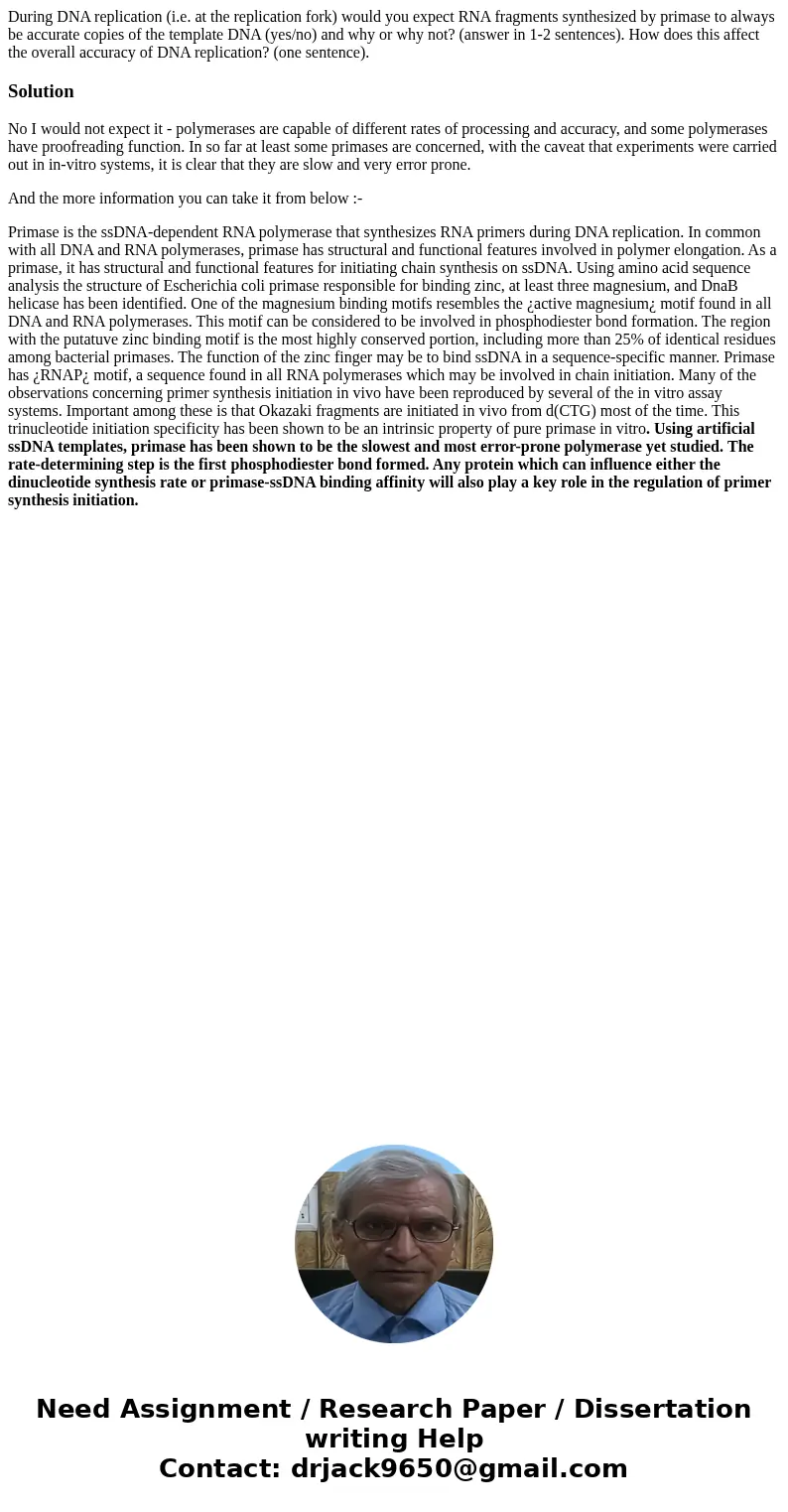During DNA replication ie at the replication fork would you
During DNA replication (i.e. at the replication fork) would you expect RNA fragments synthesized by primase to always be accurate copies of the template DNA (yes/no) and why or why not? (answer in 1-2 sentences). How does this affect the overall accuracy of DNA replication? (one sentence).
Solution
No I would not expect it - polymerases are capable of different rates of processing and accuracy, and some polymerases have proofreading function. In so far at least some primases are concerned, with the caveat that experiments were carried out in in-vitro systems, it is clear that they are slow and very error prone.
And the more information you can take it from below :-
Primase is the ssDNA-dependent RNA polymerase that synthesizes RNA primers during DNA replication. In common with all DNA and RNA polymerases, primase has structural and functional features involved in polymer elongation. As a primase, it has structural and functional features for initiating chain synthesis on ssDNA. Using amino acid sequence analysis the structure of Escherichia coli primase responsible for binding zinc, at least three magnesium, and DnaB helicase has been identified. One of the magnesium binding motifs resembles the ¿active magnesium¿ motif found in all DNA and RNA polymerases. This motif can be considered to be involved in phosphodiester bond formation. The region with the putatuve zinc binding motif is the most highly conserved portion, including more than 25% of identical residues among bacterial primases. The function of the zinc finger may be to bind ssDNA in a sequence-specific manner. Primase has ¿RNAP¿ motif, a sequence found in all RNA polymerases which may be involved in chain initiation. Many of the observations concerning primer synthesis initiation in vivo have been reproduced by several of the in vitro assay systems. Important among these is that Okazaki fragments are initiated in vivo from d(CTG) most of the time. This trinucleotide initiation specificity has been shown to be an intrinsic property of pure primase in vitro. Using artificial ssDNA templates, primase has been shown to be the slowest and most error-prone polymerase yet studied. The rate-determining step is the first phosphodiester bond formed. Any protein which can influence either the dinucleotide synthesis rate or primase-ssDNA binding affinity will also play a key role in the regulation of primer synthesis initiation.

 Homework Sourse
Homework Sourse